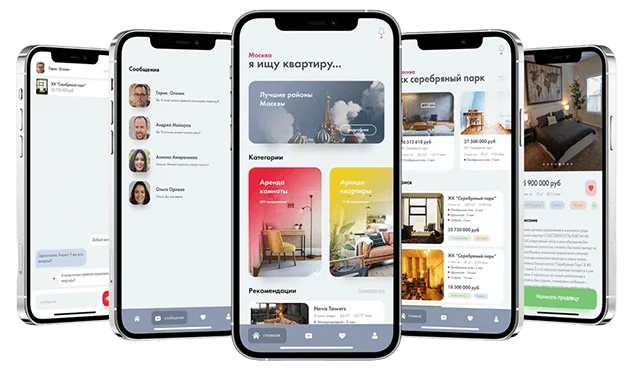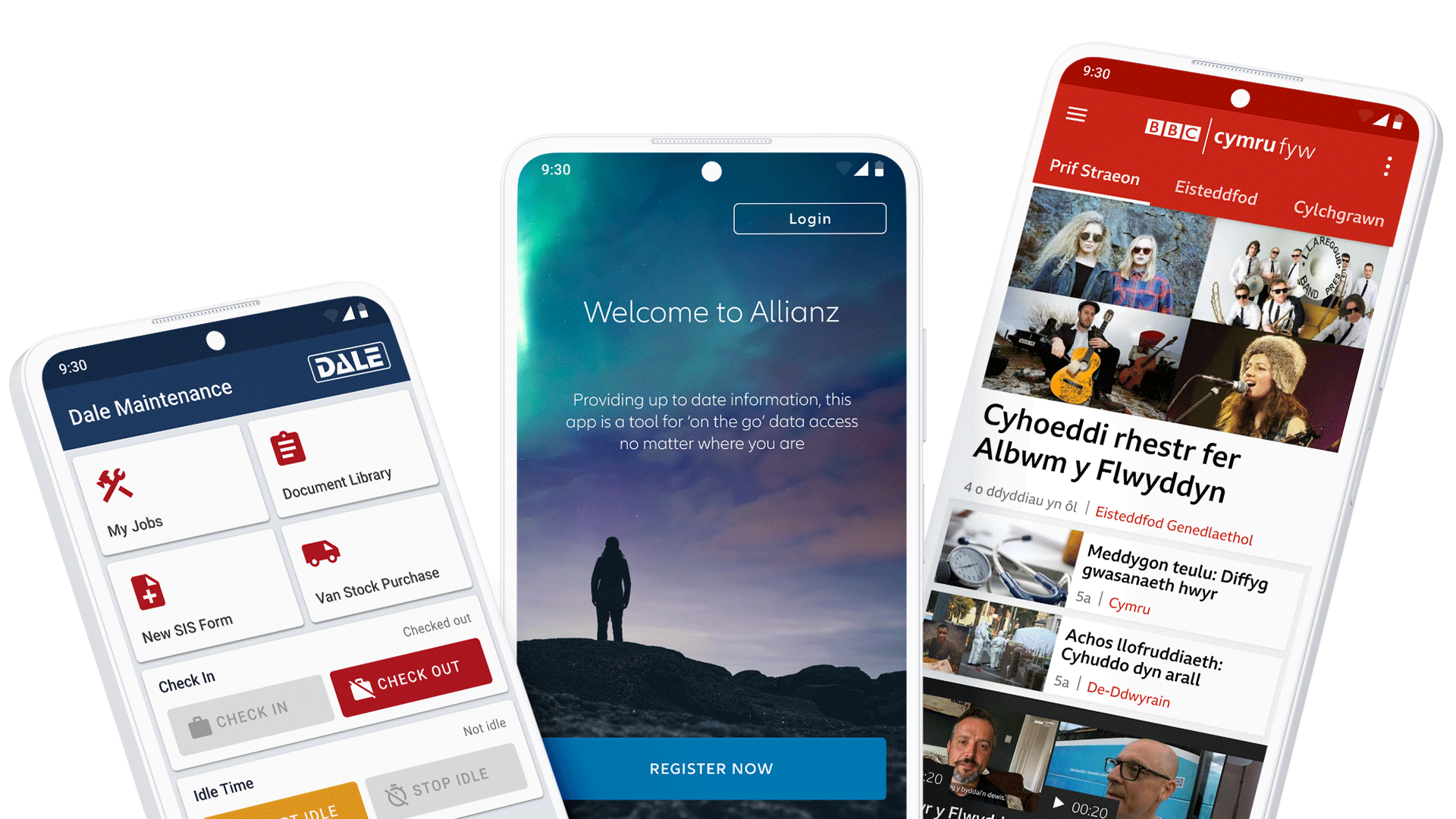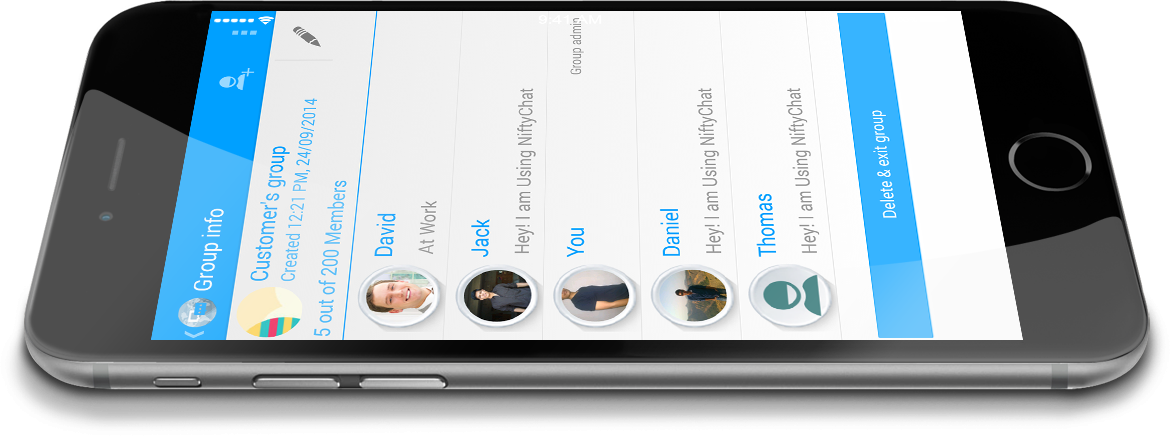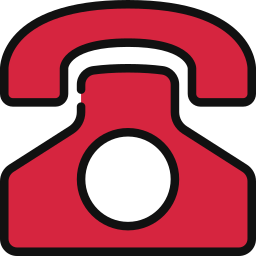Mobile App Strategy for Startups
A well-planned mobile app can propel a startup to new heights, enhancing brand presence, reaching new customers, and driving revenue growth. However, developing a successful mobile app requires more than just a great idea; it needs a solid mobile app strategy tailored for startups. This guide outlines the essential elements every startup should include in their mobile app strategy, ensuring a roadmap for both immediate growth and long-term success.
Why a Mobile App Strategy for Startups is Essential
A robust mobile app strategy for startups provides a clear path from ideation to launch and beyond. This strategy allows startups to define their target audience, conduct market research, plan for user acquisition, and, ultimately, ensure a smooth app launch. Here’s a closer look at how startups can strategically approach mobile app development.
Building a Mobile App Development Strategy with BuildBetterApp
At BuildBetterApp, we help startups design, develop, and launch mobile apps with a data-driven strategy that meets today’s fast-paced digital landscape. From market analysis to app monetization, a mobile app strategy designed by BuildBetterApp helps startups minimize risk and maximize their chance for success.
Step 1: Market Analysis – Understanding Your Target Audience
An effective mobile app strategy for startups begins with market analysis. This research phase allows startups to identify their target audience, assess demand, and understand what their potential users value in an app. Key elements of a successful market analysis include:
- Identifying Competitors: Look at existing apps in your industry to understand what works and what doesn’t.
- Evaluating User Needs: Conduct surveys, focus groups, or interviews to get direct feedback from your potential audience.
- Assessing Market Demand: Determine if there’s a true market need for your app by reviewing industry trends and customer pain points.
A thorough market analysis provides the foundation for a user-focused app that’s likely to gain traction in a crowded market.
Step 2: Competitive Analysis for Startups – Outshining Your Rivals
In addition to market analysis, a competitive analysis is vital. By evaluating competitors, startups can find opportunities to differentiate their app. Here’s how to conduct a competitive analysis for startups:
- Review Competitor Features: List the features offered by similar apps, and identify any potential gaps.
- Analyze User Feedback: Look at customer reviews to understand what users like and dislike about competitor apps.
- Benchmark Success Metrics: Compare competitors’ success metrics like download numbers, user ratings, and monetization techniques.
This analysis helps create a unique mobile app strategy for startups that avoids pitfalls and capitalizes on competitor weaknesses.
Step 3: Creating a Startup Mobile App Business Plan
A startup mobile app business plan should outline the app’s value proposition, objectives, and monetization strategy. This document will guide the app development team, keep the project focused, and attract potential investors.
Key components of a startup mobile app business plan include:
- Value Proposition: What unique problem does your app solve, and why will users choose it over competitors?
- Monetization Strategy: Define how the app will generate revenue. Will it be through in-app purchases, subscriptions, or ads?
- Goals and KPIs: Set measurable goals and key performance indicators (KPIs) to track app performance and progress.
Step 4: Crafting a Mobile App Roadmap – Planning for Development and Growth
A mobile app roadmap is essential for outlining the stages of development, launch, and post-launch updates. This roadmap should be both flexible and detailed, covering the app’s initial build and future expansions.
Elements of a successful mobile app roadmap include:
- MVP Development Process: Define the minimum viable product (MVP) for your app to launch a basic version quickly and validate market interest.
- Feature Prioritization: List essential features for the initial release and additional features for future updates.
- Timeline and Milestones: Set realistic timelines and key milestones to keep development on track.
With a clear roadmap, startups can ensure a smooth development process and prevent unexpected delays.
Step 5: MVP Development Process – Testing Market Viability
The MVP development process is crucial for startups, as it allows them to launch a basic version of the app quickly and gather user feedback. Developing an MVP helps reduce risk by validating the app concept before investing in a full-featured version.
Key steps in the MVP development process:
- Identify Core Features: Select the essential features needed to convey the app’s value.
- User Testing and Feedback: Launch the MVP to a small audience and gather user feedback to refine the app.
- Iterate and Improve: Use the feedback to add new features or adjust existing ones based on actual user needs.
By starting with an MVP, startups can reduce development costs, test the market, and make informed decisions about future updates.
Step 6: User Acquisition Strategy – Building a Loyal User Base
A well-defined user acquisition strategy is essential for building a strong user base. Startups can use various channels, including social media, influencer marketing, and content marketing, to attract and retain users.
Effective tactics for a user acquisition strategy:
- Social Media Marketing: Leverage platforms like Instagram, Facebook, and LinkedIn to reach your target audience.
- Influencer Partnerships: Collaborate with influencers who align with your brand to promote the app.
- Content Marketing: Share valuable content about your app’s benefits and features to attract organic users.
A successful user acquisition strategy helps startups attract their target audience and encourages long-term engagement.
Step 7: App Monetization – Choosing the Right Revenue Model
App monetization is the process of generating revenue from an app. There are several monetization models available, and selecting the right one is critical to the success of a mobile app strategy for startups.
Popular app monetization models include:
- In-App Purchases: Users can buy virtual goods or premium features within the app.
- Subscription Model: Users pay a recurring fee for ongoing access to the app or premium features.
- Advertisements: Ads generate revenue based on impressions, clicks, or conversions within the app.
Choosing the right monetization model helps ensure that your app is profitable and financially sustainable.
Step 8: Monitoring and Improving Your Mobile App Strategy
Once the app is launched, continuous monitoring and improvement are essential. Use analytics tools to track app performance, user engagement, and conversion rates. Collecting and analyzing this data allows startups to make informed updates, enhancing the app’s value and user experience.
Key performance indicators to track include:
- User Retention Rates: Measure the percentage of users who continue using the app over time.
- Average Revenue per User (ARPU): Calculate the average revenue generated per user to assess the effectiveness of your monetization strategy.
- Feature Usage: Analyze which features are most and least used to prioritize updates.
Regularly updating and optimizing the app ensures that it remains relevant and competitive in the market.
Conclusion
A successful mobile app strategy for startups requires careful planning, execution, and continuous improvement. With BuildBetterApp, startups can develop a comprehensive strategy that includes market analysis, competitive research, an MVP roadmap, and an effective user acquisition plan. By implementing a well-thought-out mobile app strategy, startups can set the stage for sustainable growth, monetization, and user engagement.
FAQs
Q: What is a mobile app strategy for startups?
A: A mobile app strategy for startups outlines a plan for developing, launching, and scaling a mobile app, focusing on market research, competitive analysis, and monetization.
Q: How important is the MVP development process in a mobile app strategy?
A: The MVP development process allows startups to test their app concept, gather user feedback, and validate demand before investing in a full-featured app.
Q: How can a startup choose the best monetization strategy for its app?
A: Startups should consider their target audience, industry standards, and user preferences when selecting a monetization strategy. Common options include in-app purchases, ads, and subscriptions.
Q: Why is user acquisition strategy critical for startups?
A: A user acquisition strategy helps attract and retain users, which is crucial for establishing a user base and ensuring the app’s long-term success.
Q: How does BuildBetterApp assist startups in mobile app development?
A: BuildBetterApp offers a data-driven approach to app development, focusing on competitive analysis, user acquisition, MVP development, and continuous optimization to create a successful mobile app strategy for startups.
BuildBetterApp is a leading Mobile App Development Company in Bannockburn and Mobile App Development Company in Addison, specializing in creating innovative, high-performance mobile applications tailored to businesses of all sizes. Our expert developers use the latest technologies to build user-friendly, scalable, and secure apps that drive engagement and business growth. Whether you need a custom mobile solution for iOS, Android, or cross-platform development, BuildBetterApp ensures seamless functionality and outstanding user experiences. Partner with us to transform your app idea into reality and stay ahead in the competitive digital landscape.
When developing a mobile app strategy, startups should also consider the advantage of working with experienced, regionally accessible development partners. Choosing a mobile app team that understands your local market can make a significant difference in how your app is designed, built, and optimized—especially when strategic planning is a top priority.
For example, startups seeking expert guidance in the North Shore area can benefit from partnering with a mobile app development company in Lake Forest. Their experience in building scalable MVPs and user-focused apps can enhance your strategy from day one. Similarly, if your business operates in smaller, community-driven markets, a mobile app development company in Kenilworth offers specialized attention and personalized solutions tailored for local startups.
Further west, entrepreneurs looking to launch high-growth apps can find valuable support from a mobile app development company in Hinsdale. Their teams often focus on building solid app roadmaps, balancing functionality with long-term performance and monetization. For businesses in boutique or niche industries, a mobile app development company in Highwood brings a deep understanding of user behavior and can help structure an effective MVP development process backed by real market data.
Startups targeting a broader, more affluent user base may find it beneficial to collaborate with a mobile app development company in Highland Park, where emphasis is placed on seamless design, robust backend integration, and a clearly defined user acquisition strategy.
Incorporating location-specific partnerships into your mobile app strategy can lead to better communication, more hands-on collaboration, and app experiences tailored to regional user behavior. These local experts not only assist in defining your roadmap but also play a critical role in validating features, improving your go-to-market timing, and ensuring the tech decisions align with your business goals.
As you plan your app’s success, remember that building a strong strategy is just as important as having the right idea. With the right partner—and the right plan—your startup app can go from concept to competitive advantage faster than ever.






















